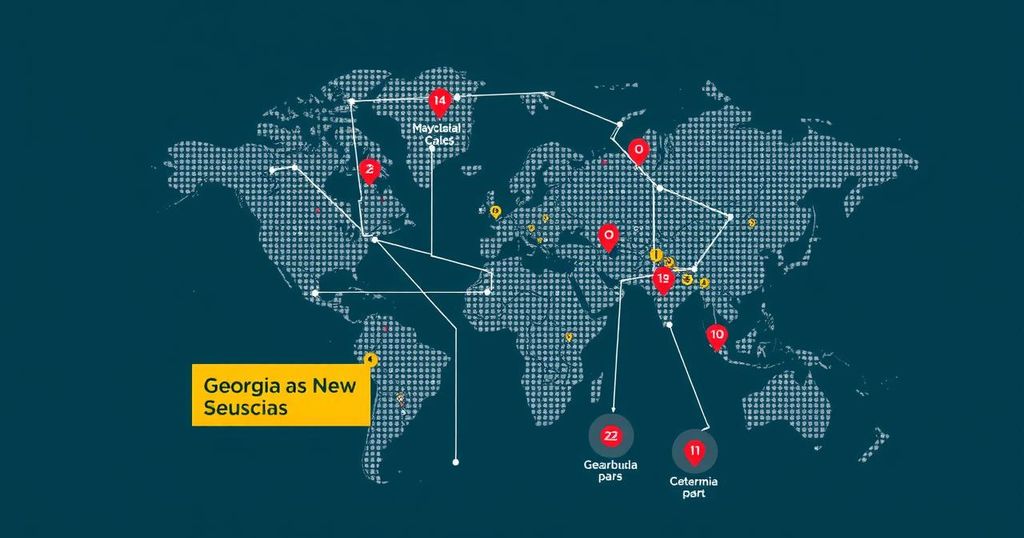Georgia’s Parliamentary Elections: Navigating Between the West and Russian Influence
Georgia is holding parliamentary elections on Saturday, viewed as a decisive moment in its post-Soviet history. The ruling Georgian Dream party promotes a stance of neutrality, while opposition groups warn of increasing Russian dominance. The results will significantly influence Georgia’s future geopolitical alignment.
As Georgia prepares for its upcoming parliamentary elections on Saturday, the nation stands at a critical crossroads. This election, labeled as the most significant since Georgia’s independence from the Soviet Union in 1991, will determine whether the country will reinforce its long-standing ties with Western alliances or pivot towards deeper connections with Russia. The ruling Georgian Dream party claims it aims to maintain peace and stability, while opposition factions argue that their governance increasingly aligns Georgia with Russian influence. The impending vote is crucial not only for Georgia’s immediate political landscape but also for its national identity and future direction in the geopolitical arena.
Georgia, strategically located at the intersection of Europe and Asia, has a complex history influenced by its proximity to both the European Union and Russia. Since gaining independence, Georgia has sought to align itself with Western democratic values and institutions, often at odds with Russian interests in the region. The current political climate reflects this tension, as the ruling party promotes a message of cautious diplomacy, while opposition voices raise concerns about the potential consequences of closer ties with Moscow amid a backdrop of historical conflicts and regional instability. Understanding this context is essential to grasp the significance of the forthcoming elections and the potential implications for Georgia’s future.
In summary, the parliamentary elections in Georgia represent a pivotal moment for the nation as it faces the decision of whether to continue its Western alignment or shift toward Russian influence. The outcome of this election could have lasting effects on Georgia’s political orientation and regional stability. Observers are keenly watching the developments, as the voters’ choices may reshape the landscape of Georgian politics in the years to come.
Original Source: www.washingtonpost.com




Post Comment